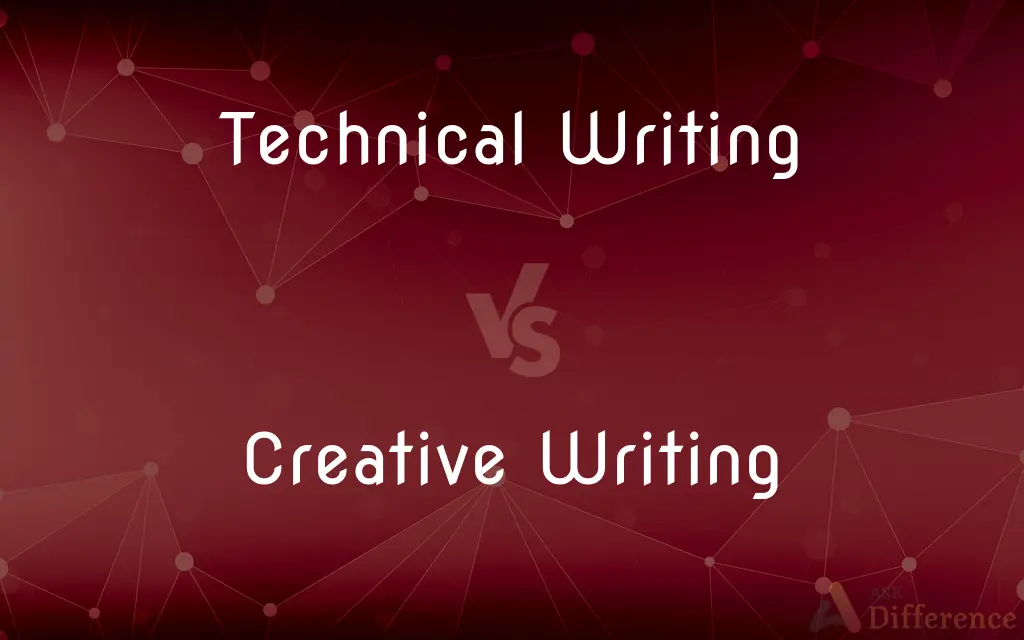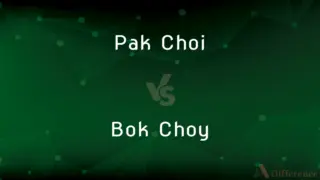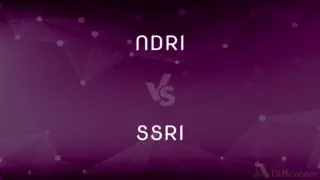Technical Writing vs. Creative Writing — What's the Difference?
By Tayyaba Rehman & Fiza Rafique — Published on March 5, 2024
Technical writing focuses on clear, concise information, targeting specific audiences with a purpose of informing or instructing. Creative writing explores artistic expression, storytelling, and character development, aiming to evoke emotions.

Difference Between Technical Writing and Creative Writing
Table of Contents
ADVERTISEMENT
Key Differences
Technical writing is characterized by its direct and purposeful nature, intended to convey specific information or instructions in a clear and accessible manner. This form of writing is prevalent in manuals, reports, and documentation, where clarity and precision are paramount. Technical writers must understand their audience's needs and technical level to communicate complex information efficiently.
Creative writing diverges significantly in its approach, embracing imagination, narrative, and the exploration of human experiences. Through novels, poetry, short stories, and dramas, creative writers craft worlds and characters that engage readers' emotions and stimulate their imaginations. Unlike technical writing, creative writing is not bound by the need to provide factual information or direct instructions.
The language used in technical writing is straightforward and unambiguous, aiming to eliminate confusion and misunderstanding. It often includes specialized vocabulary relevant to the subject at hand but explained in a way that's accessible to its intended audience. The goal is to inform or instruct, ensuring the reader can follow the guidance or understand the concepts being discussed.
Creative writing employs a wide range of literary devices, such as metaphors, symbolism, and dialogue, to enrich the narrative and deepen the reader's engagement with the text. The language can be complex and layered, inviting interpretation and personal reflection. The success of creative writing is measured by its impact on the reader, whether it's emotional resonance, thought-provocation, or entertainment.
Technical writing is constrained by the need to adhere to factual accuracy and logical structure, while creative writing offers more freedom, allowing writers to experiment with form, perspective, and style. This freedom enables creative writers to explore the breadth of human experience, from the mundane to the extraordinary, without the limitations of factual accuracy or procedural clarity.
ADVERTISEMENT
Comparison Chart
Purpose
To inform, instruct, or explain specific information.
To entertain, evoke emotions, or provoke thought.
Language
Clear, concise, and unambiguous.
Rich, imaginative, and often symbolic.
Audience
Targeted, with specific needs and technical understanding.
General or targeted, with an emphasis on engagement.
Structure
Logical and structured around objectives.
Flexible, with freedom to explore various narrative techniques.
Measures of Success
Accuracy, clarity, and usability.
Emotional impact, reader engagement, and literary merit.
Compare with Definitions
Technical Writing
Tailored to specific audiences.
The technical guide was written for novice users, avoiding jargon.
Creative Writing
Engages readers' emotions.
The short story's powerful ending showcased the impact of creative writing.
Technical Writing
Focuses on clarity and directness.
Her report exemplified technical writing, presenting data succinctly.
Creative Writing
Explores human experiences through narrative.
Her novel, a work of creative writing, delved into themes of love and loss.
Technical Writing
Precise documentation for user instructions.
The manual was a masterpiece of technical writing, making complex procedures accessible.
Creative Writing
Employs literary devices to enrich text.
The use of metaphor in his poetry elevated the creative writing.
Technical Writing
Essential in many industries.
His technical writing skills were invaluable in creating clear safety protocols.
Creative Writing
Allows for experimental structures.
Her play broke conventional forms, highlighting creative writing's flexibility.
Technical Writing
Relies on factual accuracy.
Accuracy in technical writing ensures the software documentation is reliable.
Creative Writing
Aims to provoke thought.
The narrative's complexity prompted readers to reflect, a goal of creative writing.
Common Curiosities
Is one form of writing more challenging than the other?
The challenge in either form of writing depends on the writer's skills, objectives, and audience. Both require a high level of skill and dedication to master.
Can technical writing be creative?
While technical writing prioritizes clarity and precision, it can incorporate creative elements to make the content more engaging and understandable.
How do technical and creative writing differ in purpose?
Technical writing aims to inform or instruct with clarity, while creative writing seeks to entertain, evoke emotions, or provoke thought.
What is technical writing?
Technical writing is a form of writing that focuses on explaining complex information in a clear and concise manner, often to inform or instruct an audience.
Can a writer excel in both technical and creative writing?
Yes, a writer can excel in both areas, though it may require different skill sets and mindsets to switch between the two effectively.
What makes creative writing impactful?
Creative writing is impactful when it resonates emotionally with readers, invites them to see the world differently, or stimulates their imagination.
What is creative writing?
Creative writing is an art form that explores imagination, narrative, and character to evoke emotions, provoke thought, or entertain readers.
Are there specific formats each type of writing follows?
Technical writing often follows formats like manuals, FAQs, and reports, while creative writing encompasses formats like novels, poetry, and short stories.
How important is audience understanding in technical writing?
Understanding the audience's technical level and needs is crucial in technical writing to ensure the information is accessible and useful.
How do writers develop skills in technical or creative writing?
Skills in both areas can be developed through practice, study, feedback from others, and exposure to excellent examples of each type of writing.
Share Your Discovery

Previous Comparison
Pak Choi vs. Bok Choy
Next Comparison
NDRI vs. SSRIAuthor Spotlight
Written by
Tayyaba RehmanTayyaba Rehman is a distinguished writer, currently serving as a primary contributor to askdifference.com. As a researcher in semantics and etymology, Tayyaba's passion for the complexity of languages and their distinctions has found a perfect home on the platform. Tayyaba delves into the intricacies of language, distinguishing between commonly confused words and phrases, thereby providing clarity for readers worldwide.
Co-written by
Fiza RafiqueFiza Rafique is a skilled content writer at AskDifference.com, where she meticulously refines and enhances written pieces. Drawing from her vast editorial expertise, Fiza ensures clarity, accuracy, and precision in every article. Passionate about language, she continually seeks to elevate the quality of content for readers worldwide.










































